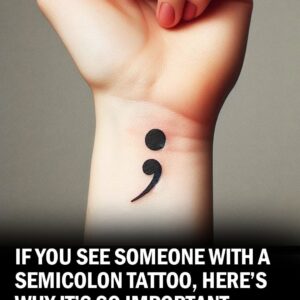In recent decades, scientists have realized that heart attack symptoms can be quite different for women than for men. The journal Circulation published the findings of a multicenter study of 515 women who’d experienced a heart attack.
The most frequently reported symptoms didn’t include chest pain. Instead, women reported unusual fatigue, sleep disturbances, and anxiety. Nearly 80 percent reported experiencing at least one symptom for more than a month before their heart attack.
In a survey published in the journal Circulation, only 65 percent of women said they’d call 911 if they thought they might be having a heart attack.

Symptoms of a heart attack in women include:
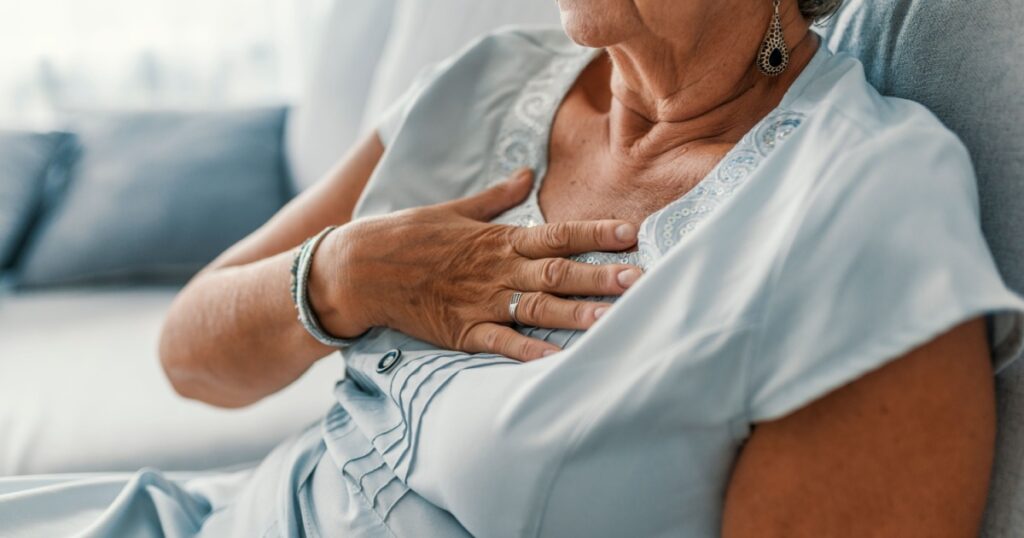 Credit: Shutterstock
Credit: Shutterstock
Even if you’re not sure, get emergency care right away. Base your decision on what feels normal and abnormal for you. If you haven’t experienced symptoms like this before, don’t hesitate to get help. If you don’t agree with your doctor’s conclusion, get a second opinion.
Unusual fatigue lasting for several days or sudden severe fatigue
 Credit: Shutterstock
Credit: Shutterstock
Profound and unexplained fatigue or a sudden decrease in energy levels can sometimes be a warning sign of a heart attack in women.
Sleep disturbances
 Credit: Shutterstock
Credit: Shutterstock
Sleep disturbances, such as insomnia, unusual restlessness, or waking up frequently during the night, have been reported as warning signs in some women prior to a heart attack.
Anxiety
 Credit: Shutterstock
Credit: Shutterstock
Some women may experience a sense of impending doom, anxiety, or a feeling that something is terribly wrong during a heart attack.
Lightheadedness
 Credit: Shutterstock
Credit: Shutterstock
Feeling dizzy or faint is another symptom that may occur during a heart attack.
Shortness of breath
 Credit: Shutterstock
Credit: Shutterstock
Feeling breathless or having difficulty catching your breath can be a symptom of a heart attack. This may occur with or without chest discomfort.
Indigestion or gas-like pain
 Credit: Shutterstock
Credit: Shutterstock
Some women may feel nauseated or may vomit during a heart attack, which can be mistaken for other gastrointestinal issues.
Cold Sweats
 Credit: Shutterstock
Credit: Shutterstock
Cold and clammy skin, along with sweating, can accompany a heart attack, especially in women.
Jaw pain or pain that spreads up to your jaw
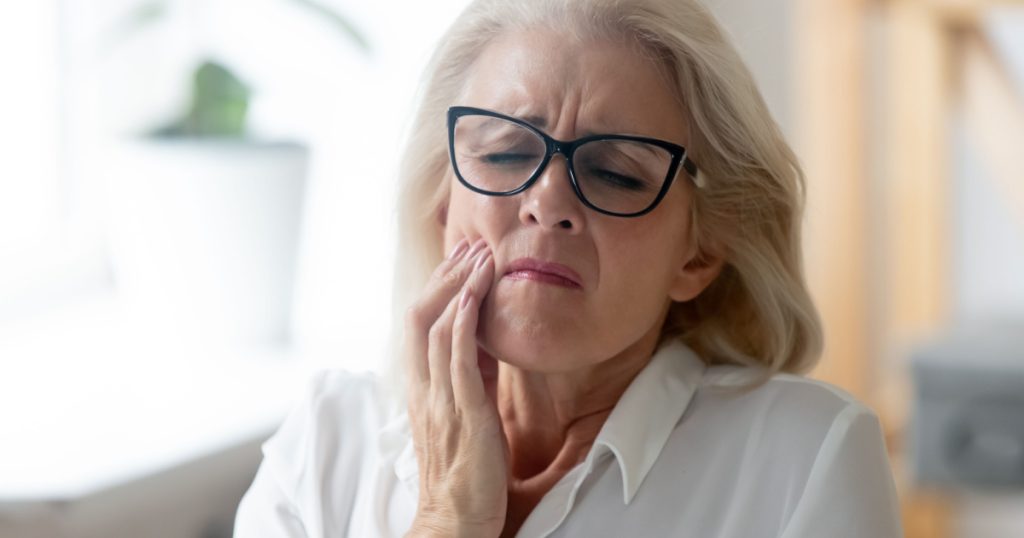 Credit: Shutterstock
Credit: Shutterstock
Women may experience pain or discomfort in areas other than the chest, such as the neck, jaw, shoulder, back, or stomach. This pain may radiate from the chest and is often a more subtle symptom.
Pressure or pain in the center of your chest, which may spread to your arm
 Credit: Shutterstock
Credit: Shutterstock
While chest pain is a common symptom in both men and women, women may experience different types of chest discomfort. It can be described as a squeezing, fullness, pressure, or burning sensation in the chest that may come and go.
Heart attack in women over 50
 Credit: Shutterstock
Credit: Shutterstock
Women experience significant physical changes around age 50, the age when many women start to go through menopause. During this period of life, your levels of the hormone estrogen drop. Estrogen is believed to help protect the health of your heart. After menopause, your risk of heart attack increases. Unfortunately, women who experience a heart attack are less likely to survive than men. Therefore, it becomes even more important to remain conscious of your heart health after you go through menopause.
Remain aware of these symptoms and schedule regular health checkups with your doctor. There are additional symptoms of a heart attack that women over the age of 50 may experience. These symptoms include:
severe chest pain
pain or discomfort in one or both arms, the back, neck, jaw, or stomach
rapid or irregular heartbeat
sweating
Silent heart attack symptoms
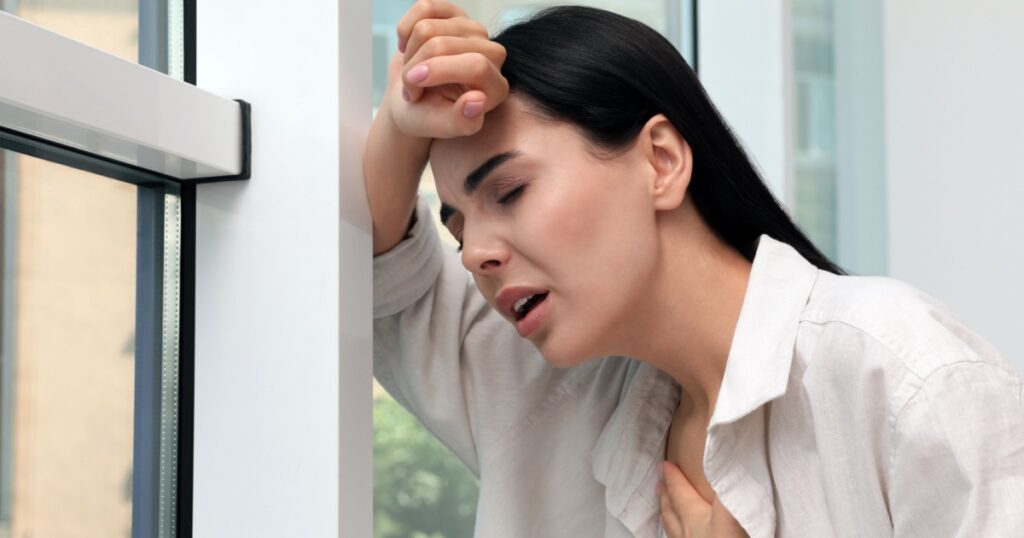 Credit: Shutterstock
Credit: Shutterstock
A silent heart attack is like any other heart attack, except it occurs without the usual symptoms. In other words, you may not even realize you’ve experienced a heart attack.
In fact, research from Duke University Medical Center has estimated that as many as 200,000 Americans experience heart attacks each year without even knowing it. Unfortunately, these events cause heart damage and increase the risk of future attacks. Silent heart attacks are more common among people with diabetes and in those who’ve had previous heart attacks.
Symptoms that may indicate a silent heart attack include:
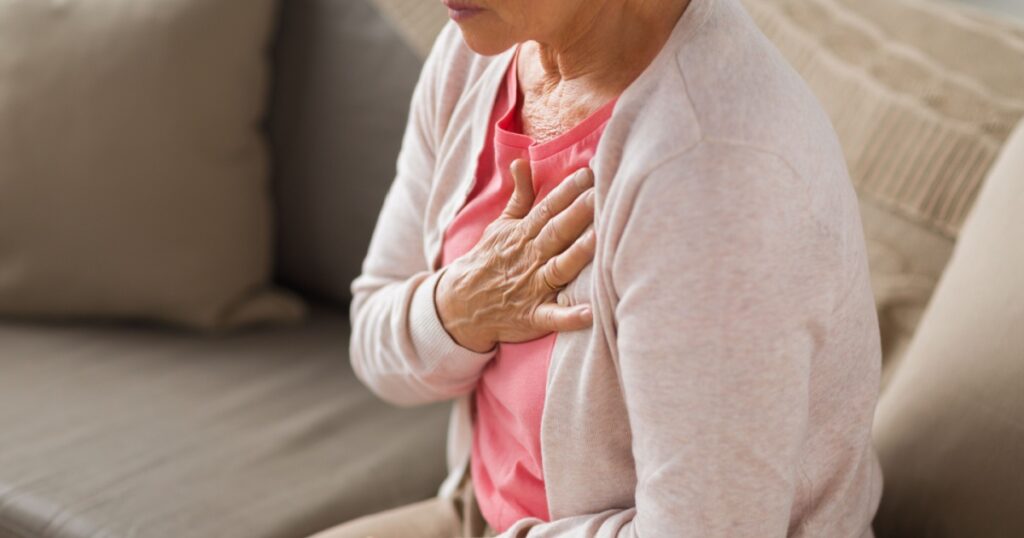 Credit: Shutterstock
Credit: Shutterstock
mild discomfort in your chest, arms, or jaw that goes away after resting
shortness of breath and tiring easily
sleep disturbances and increased fatigue
abdominal pain or heartburn
skin clamminess
After having a silent heart attack, you may experience more fatigue than before or find that exercise becomes more difficult. Get regular physical exams to stay on top of your heart health. If you have cardiac risk factors, talk to your doctor about getting tests done to check the condition of your heart.
Schedule regular checkups
 Credit: Shutterstock
Credit: Shutterstock
By scheduling regular checkups and learning to recognize the symptoms of a heart attack, you can help lower your risk of severe heart damage from a heart attack. This may increase your life expectancy and well-being.
News
If You See Someone With a Semicolon Tattoo, Here’s Why It’s So Important
People often get tattoos that are meaningful to them, using their bodies as a canvas to tell their stories. However, a semicolon tattoo holds its own meaning, one that…
Heart Surgeon Reveals 4 Foods You Should ‘Always Avoid’ That Will ‘Poison’ Your Body
Ensuring a long and healthy life often hinges on the food and drinks we consume daily. While there are exceptions to every rule, maintaining a balanced diet is crucial…
Attention, Parents! You Might Want To Hold On To Your Kids’ Baby Teeth
Cryopreservation of stem cells may sound like science fiction, but I assure you, it is not. According to scientists, baby teeth have stem cells that help regenerate various…
Doctor makes worrying claim that ‘every new patient’ at cancer clinic is under 45 and blames one thing
Cancer does not have a single cause, but instead is the result of the interaction of several factors. [1] However, certain factors, such as obesity and smoking, can…
‘I’m Leaving Y’all’: Whoopi Goldberg Walks Off ‘The View’ Amid Miranda Lambert Controversy
Whoopi Goldberg made a dramatic exit on The View amid a debate over Miranda Lambert’s recent concert incident. Lambert had called out fans for taking selfies during…
If You’re Going To Eat At A Restaurant This Weekend, Beware Of “Fried Rice Syndrome”
Share Attracted by the diversity of cultures in her state, Germaine Mobley, a Texan, loved dining out. But she developed “fried rice syndrome,” which turned her enjoyment…
End of content
No more pages to load
